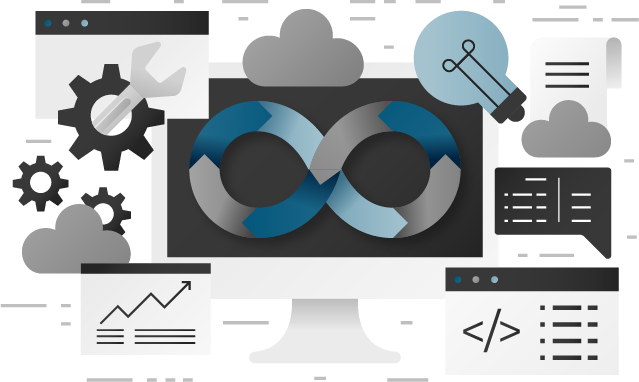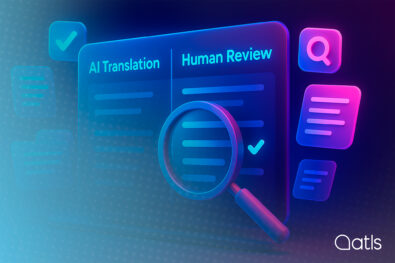In the age of automation, fast-paced internationalisation and the need for instant multilingual experiences, global enterprises have an increasingly strategic challenge: how to manage large volumes of multilingual content efficiently, securely and in full alignment with their internal processes. Spoiler alert: with native plugins.
Most standard solutions on the market are based on technologically "agnostic" platforms, allowing them to be superficially integrated with various customer systems. However, this blanket flexibility comes with limitations: fragmented flows, low automation, reliance on manual tasks and poor alignment with teams' actual operations.
Unlike this approach, ATLS's native plugins deliver a standout proposition: deep, secure and automated integrations tailored to the real workflow of your teams. From CMS such as WordPress and Adobe Experience Manager to document managers such as SharePoint or design platforms such as Figma, our plugins enable seamless and uninterrupted translation of content from the usual environment.
What are native plugins?

ATLS's native plugins are technological integrations developed to connect our language management platform with the digital tools which businesses are already using as a matter of routine. These include CMS such as WordPress, Drupal, Contentful, StoryBlok and Magnolia plus e-commerce platforms such as Shopify and WooCommerce.
Instead of compelling teams to go outside their systems to ask for translations, native plugins allow content localisation to become a natural part of the workflow. They integrate deeply into your CMS, TMS, DAM or UI environments, making it easy to automate processes which were previously manual, fragmented or prone to human error.
What do ATLS native plugins bring to the table?
Over and above integration, our technology transforms the way businesses handle their multilingual content:
- Ask for translations directly from your platforms: no emails, no copying and pasting, no unnecessary steps.
- Automate the entire content flow: back and forth between original and translated texts with full traceability.
- Choose the most appropriate kind of translation: from AI trained with your own glossaries and style to professional human review.
- Gain control and consistency: all processes are ISO 27001 and ISO 17100 compliant and GDPR friendly.
- Scale effortlessly: tailor the model to all your departments, markets and languages without increasing operational complexity.
| Indicator | Estimated impact |
| Project management time | ⏱ Reduction of up to 60% |
| Error rate in final versions | ❌ Decrease of more than 80% |
| Time-to-market | 🚀 Accelerated time-to-market in e-commerce campaigns |
| Localisation operational costs | 💸 Average savings of up to 40% |
| Terminology and brand consistency | ✅ Continuous improvement and traceability across all languages |
Linguistic flexibility: customised AI or human review; you choose
One of the core advantages of ATLS's plugins is that they do not restrict the kind of translation available. Content can be run through our neural machine translation AI trained with customer-specific glossaries, tone and terminology or referred to a team of professional human translators when required by the context (marketing, legal, technical, compliance, etc.).

And best of all: both flows are integrated into the same system. The customer chooses which content goes through AI, what is reviewed and what is translated manually. And all this is done without ever leaving their working environment.
Much more than just translation: a strategic solution
Choosing native plugins is a business decision. It involves shifting from a reactive and fragmented model to a proactive, integrated and scalable one. It means:
- Turning translation into a lever for growth.
- Freeing teams from manual tasks with no added value.
- Ensuring consistency and control in all markets.
And most importantly, matching linguistic strategy with corporate goals.
Success story: Air Europa and the transformation of its multilingual management with Magnolia
One of the prime examples of the impact of our native plugins is Air Europa, one of Spain's leading airlines. Like many companies in the industry, the airline historically relied on selling tickets through third parties: online travel agencies and metasearch engines. This posed three major challenges:
- High costs in fees, which squeezed profit margins.
- Loss of control over the relationship with the end customer, as it does not directly manage the data or the purchasing experience.
- Operational limitations in responding to incidents or personalising communication.
To redirect traffic to its own website and drive direct sales, Air Europa needed to generate more digital content in various languages. But then an additional challenge came up: managing multilingual translations efficiently without slowing down its internal operations or overloading its content teams.
The solution was straightforward: integrate the Magnolia CMS with the ATLS platform via a native plugin.
This integration meant:
- The content team was able to send texts to be translated straight from the CMS without leaving the environment.
- The entire creation, delivery, translation and posting cycle was automated.
- The language barrier was no longer holding back digital growth.
The results have been striking: Air Europa has significantly increased its direct sales from its website, improving its margins, regaining control over the customer experience and fast-tracking the production of content in numerous languages.
The next step? Native plug-ins
Find out how ATLS native plugins can cut your operational costs, expedite your international expansion and improve the consistency of your multilingual content.
FAQs about native plugins
What is a native plugin?
A native plugin is a direct, pre-built integration between two platforms which allows the exchange of data with no need for additional developments. It is optimised to work out of the box with no custom coding required, which speeds up implementation and reduces technical errors.
What are the advantages of native plugins over custom integrations?
Native plugins make for faster, more secure and stable integration. Because they are specifically designed for particular platforms, they are less maintenance-intensive, offer greater compatibility and shorten implementation time compared to custom integrations.
What kinds of businesses or systems are native plugins useful for?
They are ideal for companies that use SaaS tools (such as CRM, CMS, ERP or machine translation platforms) and need them to communicate seamlessly. They bring great value in sectors such as ecommerce, digital marketing, logistics, human resources and legaltech.
What is the difference between a native plugin and an API?
An API is a technical interface which allows two systems to communicate but requires development to be implemented. A native plugin is already built on top of that API, ready to use with integrated business logic and no additional programming required.







